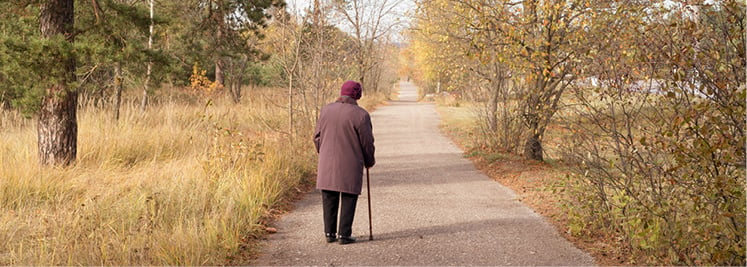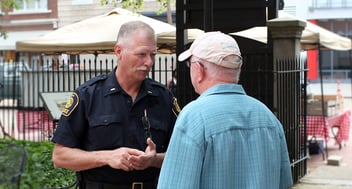MedicAlert and University of Waterloo Research Shows Promise for Dementia Wandering

In 2022, using MedicAlert’s data from MedicAlert’s National Wandering Registry, Dr. Lili Liu and her research team at the University of Waterloo’s School of Public Health undertook a peer-reviewed study entitled “Prevalence of and antecedents to missing incidents amongst Medic-Alert® ’s subscribers: A retrospective descriptive study” (A. Perez, Y. Choi, C. Daum & L. Liu). This study is currently under peer-review with BMC Geriatrics, a journal focused on health conditions in seniors, so we can’t share the full results just yet, but there are things we can share that are showing some exciting new promise when it comes to wandering.
But first we need to put this study into context.
According to the 2022 Landmark Study, published by our friends at the Alzheimer’s Society of Canada, nearly 11,000 Canadians are diagnosed with dementia every month. In six years, that number is forecast to increase to more than 15,500. Of those thousands of people, 60 per cent will go on to wander at some point in their disease progression.
“Among the most challenging aspects of caring for an individual living with dementia is wandering,” says Dr. Stefanie Tan, MedicAlert’s Associate Vice President of Research, Innovation and Programs. “While there is no cure for Alzheimer’s and other dementias, there has been very little focus on wandering behaviours. This creates enormous burdens on care partners as well as significant costs for search and rescue operations.”
In 2012, MedicAlert, the national charity that manages one of the largest health information databases in Canada, took over the country’s National Wandering Registry from the RCMP at the police force’s request.
“Over the past decade, MedicAlert has evolved the registry to include data that can both help search and rescue teams, and inform vital wandering instance research,” says Dr. Tan. “Today, approximately ten per cent of Canadians living with dementia are part of the Registry. While this is a significant number of people, we would encourage more care partners to consider registering their loved one with MedicAlert. The cost to do so is significantly less than the mental, social and system costs to deal with one or more wandering events.”
In fact, MedicAlert’s research shows that for every $1 invested in the National Wandering Registry and the Safe & Found program, the charity is able to return a phenomenal $9.03 of social impact.
What’s more, notes Dr. Tan, the MedicAlert/University of Waterloo Research study completed in December of 2022 uncovered that 90 per cent of people living with dementia who are registered with MedicAlert and wander are found with no apparent injuries or compromised health.
“MedicAlert’s current offering through the Safe & Found program is proven to be effective. But our latest research combined with advanced technologies is beginning to show that we are only just scratching the surface of what could be life-changing for people living with dementia and their families,” says Dr. Tan.
MedicAlert’s research and innovation can have a significant positive, and game changing impact on the way dementia-related wandering is managed. The charity’s vision can reduce the burden and worry shouldered by thousands of family and friends caring for loved ones who live with Alzheimer’s and other dementias. “It is important that we grow the National Wandering Registry and continue to research the highly complex area of wandering so that we can build predictive models that will help in the care and management of this set of diseases from a very practical perspective.”
To learn more about MedicAlert’s work related to dementia wandering through its Safe & Found Program, go to https://www.medicalert.ca/safe-and-found or call 1-800-668-1507.



